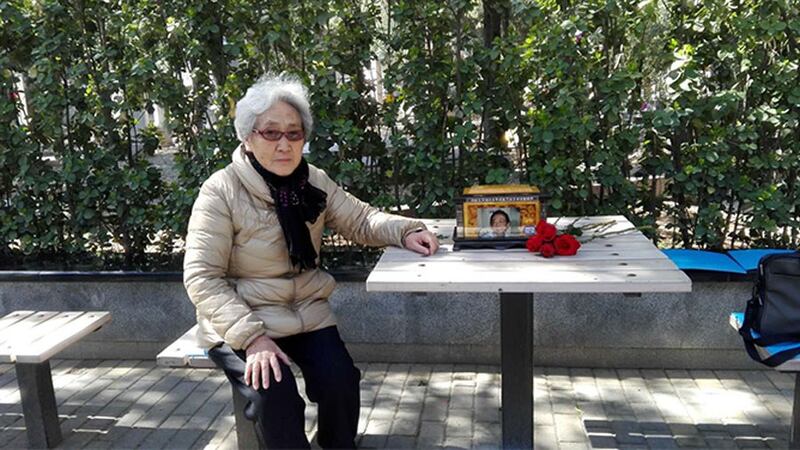Relatives of people killed in Beijing when Chinese leaders deployed People's Liberation Army (PLA) tanks and machine guns to end several weeks of student-led protests on Tiananmen Square in 1989 have once more called for justice.
More than three decades after the massacre on the night of June 3-4, the Tiananmen Mothers' victims group has called on the administration of President Xi Jinping to make public ruling Chinese Communist Party records from that time, and explain the chain of events that led to the deaths of their loved ones.
The group, in an annual open letter to China's leaders, takes aim at the official silence surrounding the events of June 4 and the immediate aftermath, when hundreds, possibly thousands, died or were injured in the crackdown.
The letter, which carried 124 signatures, repeated the Tiananmen Mothers' key demands of truth-telling, compensation and accountability from the ruling Chinese Communist Party over the incident.
Tiananmen Mothers founding member Zhang Xianling, whose 19-year-old son died in the military assault on Beijing, said the group has suffered through 31 years of government indifference to their loss.
"They owe us an explanation," Zhang said. "Which individuals, which government agencies [were responsible], and what were the circumstances, and on what did they base the decision to commit such acts of murderous violence?"
"What laws did our children break, that they needed to be beaten to death and gunned down?"
The open letter also demanded to know which Chinese law permitted the government to kill students and other civilians for engaging in peaceful protest.
"Under China's constitution, Chinese citizens should enjoy freedom of speech, assembly and protest," the open letter said. "The party should stay true to its original intentions and properly implement the law."

'Is the constitution worthless?'
Zhang said Xi Jinping has frequently called on the ruling party not to forget its original intentions, and to strengthen the rule of law.
"So is the constitution worthless, not worth the paper it's written on, in this country that supposedly has rule of law?" Zhang said.
She called on the international community to mark the 31st anniversary of the Tiananmen massacre on Thursday.
In Hong Kong, which has held annual candlelight vigils for the dead of June 4, 1989 since 1990, police have banned any gathering in Victoria Park this year, citing restrictions linked to the coronavirus pandemic.
But the ban also comes as Beijing prepares to impose draconian sedition and subversion legislation on the city, bypassing the legislative process set out in its mini-constitution, the Basic Law.
Vigil organizer Richard Choi said one of the main aims of the vigils over the years had been to show support for and offer some comfort to the Tiananmen Mothers.
"But our actions have been frustrated and suppressed," Choi said. "We don't know whether this suppression, this setback, is only temporary, or whether this will intensify in future."
"I think the Hong Kong police and government are just using the pandemic as an excuse, and that their political goal is to suppress the June 4 vigil and other protest movements in Hong Kong," he said.
Livestreamed vigil in Hong Kong
But the vigil organizers have called instead on private citizens to light candles for the dead of Tiananmen Square wherever they happen to be on June 4.
"We hope that the candles will be seen in every corner of Hong Kong," Choi said, adding that a handful of vigil organizers and veteran rights activists will livestream a memorial event from the park, while staying within government restrictions of no more than eight people gathering in public.
"We will also have livestreamed events; there will be period of silence, and there will be declarations, videos of the Tiananmen Mothers, and singing," Choi said.
Zhang said she believed that the public would mourn the dead and condemn the government's violence in their own way.
In Washington, U.S. State Department spokesperson Morgan Ortagus issued a statement applauding the aspirations of protesters, consoling the bereaved, and calling for a “full, public accounting of those killed or missing.”
“The American people stand with the families still grieving their lost loved ones, including the courageous Tiananmen Mothers who have never stopped seeking accountability for their children’s deaths, despite great personal hardship and risk,” the statement said.
Reported by Han Jie for RFA's Mandarin Service. Translated and edited by Luisetta Mudie.
